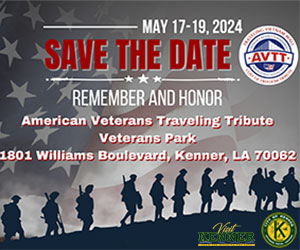For many reasons, Louisiana born Bill Russell cemented his revered place in history
Bill Russell was my favorite athlete.
And to steal a phrase from another great athlete, Muhammad Ali, he was my favorite “of all time!”
The greatest winner in the history of professional team sports in America was truly unique and when he passed away recently, I was surprised to find so many people did not know he was a Louisiana native.
Born in 1934 in West Monroe, Louisiana, the man who led the Boston Celtics to 11 NBA championships in 13 seasons – including eight-in-a-row – was part of the African American migration from North Louisiana to Northern California during the 1940’s.
In a way, Russell carried his Louisiana roots with him all his life. His full name was William Felton Russell. His mother, a stickler for education, gave him that middle name after Felton G. Clark, President of Southern University in Baton Rouge for over 30 years.
More Bill Russell Info:
— He was an awful high school basketball player. You know, that tall gangly kid at the end of the bench. Fortunately, he played at McClymonds High School in Oakland, a perennial power, so he at least got to play during garbage time. The big men on the McClymonds campus were Baseball Hall of Famer Frank Robinson and Curt Flood. However, young Bill did dress up as the school’s Warrior mascot during football games.
— His sport in high school was track and field as the top high jumper in the state of California—with the possible exception of a high jumper at a rival high school named Johnny Mathis. Yes, that Johnny Mathis, who turned down an invitation to the 1956 Olympic Trials because Columbia Records called and offered studio time for his first recording. Good choice.
— Loyola of New Orleans contributed to that 56-game winning streak the University of San Francisco Dons fashioned in 1955-56 thanks to Bill Russell. In December of 1955 USF beat the Wolfpack 61-43 at Loyola Fieldhouse. One of Russell’s teammates on those back-to-back national title teams was Warren Baxter, a graduate of Booker T. Washington High School in New Orleans.
Groundbreaking accomplishments like being the first black head coach of a professional sports team – he won NBA titles in 1968 and 1969 as a player-coach – was not what set him apart from the rest. Bill Russell was the first black athlete to be told “shut up and dribble.”
Jackie Robinson was thrust into his position as an activist. Breaking baseball’s color barrier came with rules and limitation he had to abide by. Russell spoke his mind on and off the court when athletes, black or white, were not supposed to do so. He did so using his platform and checkbook while playing in Boston, Massachusetts, a city known for its hostility toward blacks.
Russell accomplished his mission for positive change through athletic ability, intelligence, wit, humor, class, dignity and an uncompromising demand for respect as a man.
I saw my favorite athlete play in person on one occasion. The Celtics and the Sixers played an exhibition game in 1966 at Loyola Fieldhouse. It was Russell vs. Chamberlain. The experience gave me surprising insight into that bitter rivalry between the two giants who hated each other. Or so we were led to believe.
As a 14-year-old autograph seeker, I patiently waited in the Sixers’ locker room for one more autograph. Wilt Chamberlain’s signature was worth the wait.
The team bus to the airport was delayed because Chamberlain moved at his own pace, the last player to leave the locker room. I was astonished to see Wilt board a bus with both teams on board. And he took a seat next to Bill Russell!
Subsequently, both men let the world know of their friendship during their playing careers.
Wisdom was synonymous with the name Bill Russell. His opinions and analysis of various topics on and off the court usually drew a reaction of a nod and the phrase “that makes sense.”
I experienced that phenomenon during my only conversation with him. It was the 1981 NBA Finals, and I was covering the series while Russell was working for CBS. It was two hours before tip-off, and I saw my favorite athlete sitting in the arena alone. This was my chance.
I told him how much I enjoyed his autobiography, “Second Wind.” However, I had a question about his thoughts on television executives. He described the industry as having a great eye, not much of a brain and no nose. I understood the first two, but what did he mean no nose?
He put his arm around my shoulder, looked down at me and said, “They can’t smell sh—-.” And with that unmistakable high-pitched cackle laugh, he continued, “It could be all around them, the most important thing in the world and they’ll ignore it in favor of something that doesn’t matter.”
Yep. He made sense.
Yankees legend Mickey Mantle was my childhood hero. When he died in 1995, it was the departure of one of my childhood joys. My last image of “The Mick” was the jaundiced, remorseful man dying of alcohol-induced liver cancer.
My final image of Bill Russell? A 2020 photo he posted on social media, slowed by the natural progression of time, Presidential Medal of Freedom around his neck, on one knee, in solidarity with athletes around the world protesting police brutality and human rights violations around the world.
My favorite athlete never left. And he never will.
- < PREV Video: Newman coach Nelson Stewart on upcoming season
- NEXT > Pelicans announce 2022-23 regular season schedule





